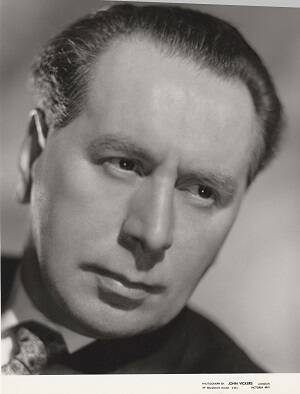Early days

Born in Henley on Thames to Derbyshire parents, as a small boy John returned with his family to the Derbyshire village of Apperknowle.
His singing career began in the local Methodist chapel, after which he joined Dronfield Choral Society. Four members of the society formed a group known as the Belton Singers, and with them he took part in his first broadcast on the 26 March 1939. At the time he was singing under his first name, Archie (Archibald), but shortly afterwards he began to use his second name, John.
When war broke out he was in a reserved occupation, mending railway wagons at Staveley Works near Chesterfield, and was exempt from military service. In 1943, after an audition with Sir Henry Wood, the latter suggested to agents Ibbs and Tillett that he be put on their books. His first important engagements followed soon afterwards in 1944, when he was engaged to stand in for Norman Walker at short notice in two performances of the Messiah conducted by Sir Malcolm Sargent, one with the Liverpool Philharmonic and one in Manchester with the Halle Orchestra and Chorus, the Huddersfield Choral Society and the Sheffield Philharmonic Society.

The Belton Singers
Albert Bennett Joe Wheatley
Walter Hardwick Archie Dethick



After the war he had two seasons with Sadler's Well Opera. Whilst with them he was a soloist in the Salute To Victory concert in the Royal Albert Hall on
9 June 1946. On 7 February 1947 he participated in a broadcast performance of M. Mussorgsky's Boris Godunov, conducted by Stanford Robinson.



At this time he began studying with Roy Henderson, who advised him to devote himself to the concert platform if he wished to have a long career. He spent two seasons singing on The Spa in Scarborough with Joyce Elshaw under the baton of Kneale Kelley, who then engaged him to sing in two concerts celebrating the opening of the Royal Festival Hall in 1951.
Thus his early career began.



All the illustrative material comes from John Dethick's personal archive.
Janet Kinrade Dethick 2020